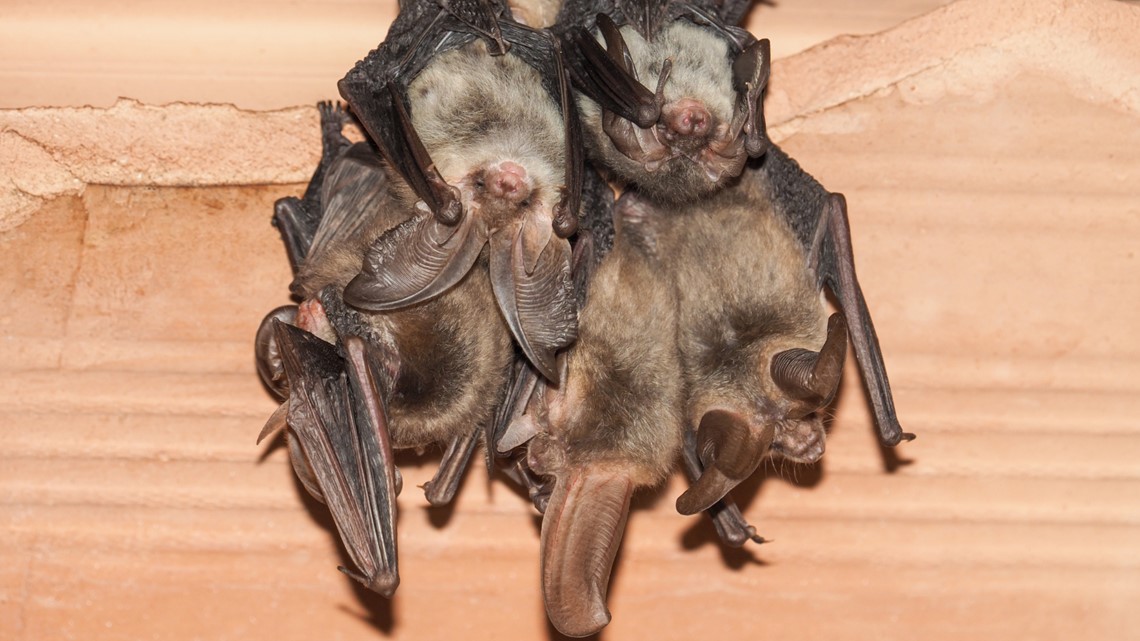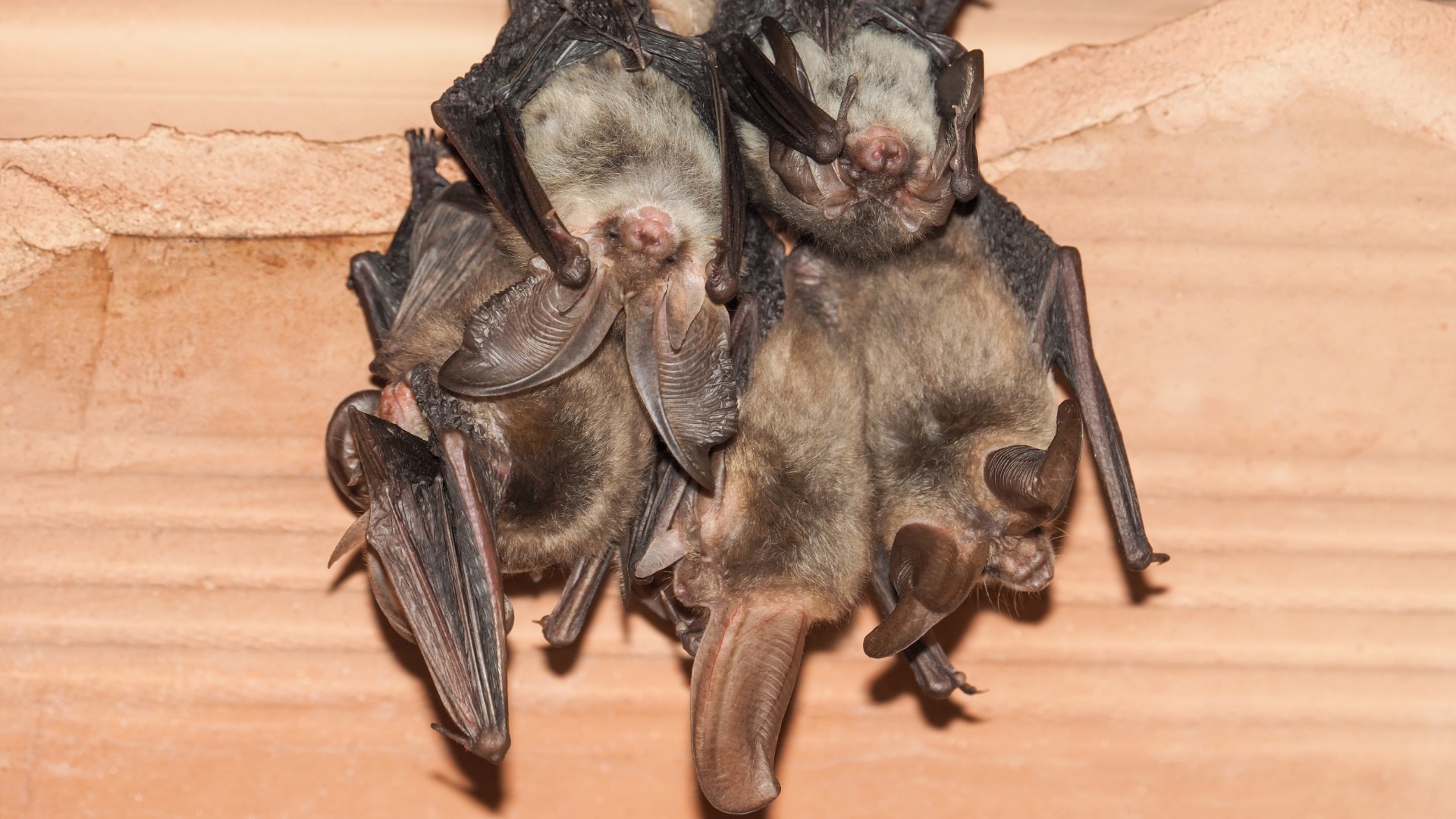GREENSBORO, N.C. — Bats in the attic can be smelly, unwanted roommates, but because of their status as a protected species, pest control will not remove them from your home until August.
"They're very valuable to the ecosystem. We don't want to harm or uproot these animals," McNeely Pest Control wildlife biologist Mark Parsons said.
The extraction devices used to typically remove the flying rodents from your home allow the animals to leave when they feed at night, but then deny access when they return. This harmlessly kicks bats to the curb.
However, for the last decade, bat populations have fallen due to an easily spreadable disease called white-nose fungus. It irritates the bats when they hibernate in the winter, waking them to search for food when insect populations are lowest. The fungus has killed bats by the millions, threatening the species.


To combat the disease and support natural re-population, wildlife biologists will not risk disturbing bats during breeding and pup-rearing season. In the Carolinas, breeding season takes place between May and July.
"The removal devices," Parsons said, "lets the adult bats leave the nesting area to look for food, but it leaves the pups behind. Unfortunately, the babies will die if that's the case."
If you have bats nesting in your attic, this means for the next few months, you will have the critters as unwanted squatters until August. To prevent the animals from entering your indoor living space, you should seal off any open access points to your attic.
Pest control performs this service professionally. For most companies, the servicemen will put your home on a list and return in August to remove the bats and clean the guano - er, bat poop - they leave behind.
According to Parsons, this can cost anywhere from $150-$1,500 depending on how much of your home you need sealed. The fine, however for harassing or killing a protected species, is far greater. You could face up to a $2,000 first-time fine if you wound or hurt the animal.

